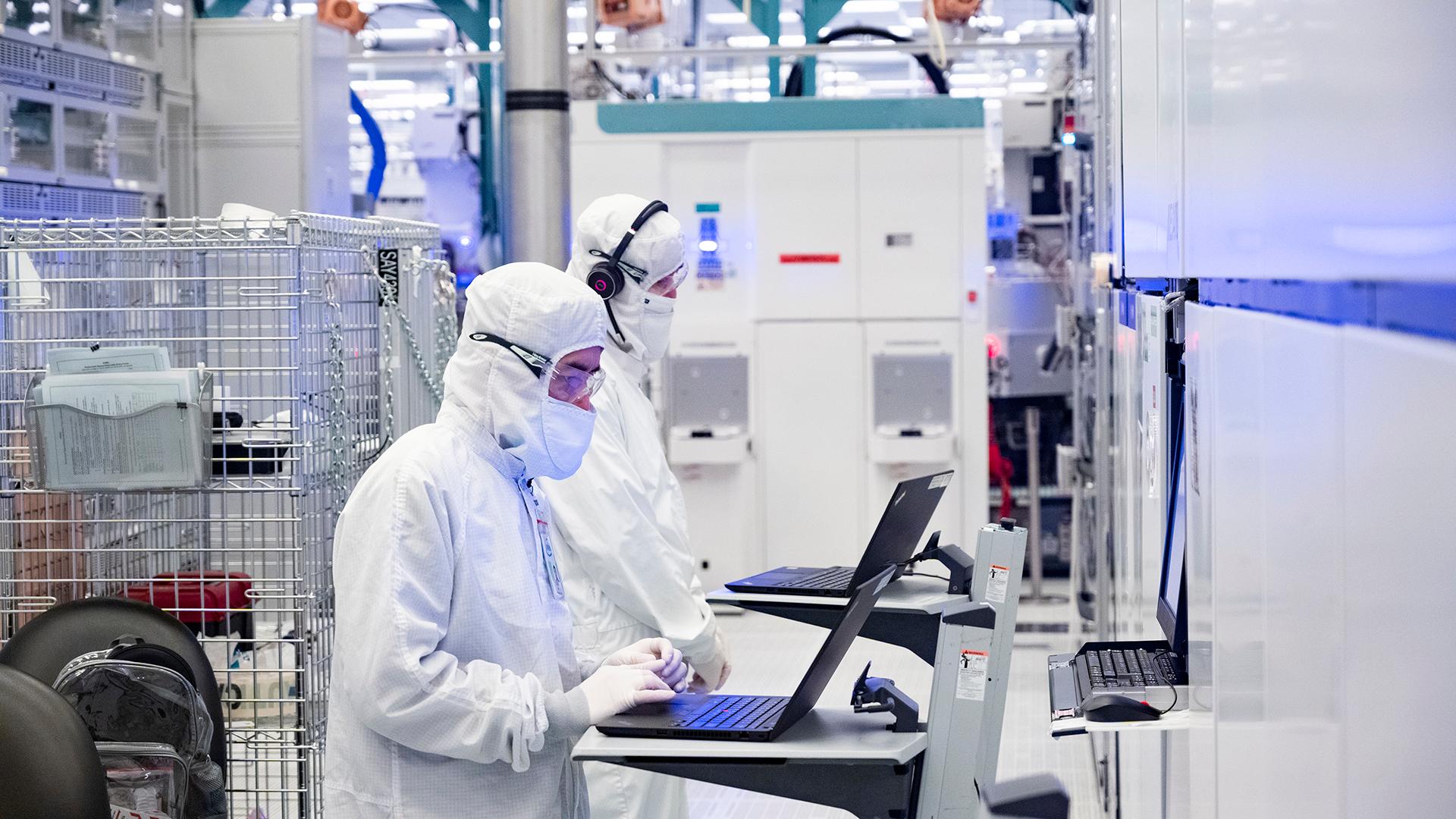TSMC and Broadcom explore deals to split Intel's foundry and chip design wings, says report
Broadcom is interested in chip design and marketing segments, while TSMC is considering taking over its fabrication plants.

Intel is facing potential acquisition bids from TSMC (Taiwan Semiconductor Manufacturing Company) and Broadcom, according to sources cited by The Wall Street Journal. The two major tech companies are exploring deals that could effectively split Intel's operations, with Broadcom reportedly eyeing Intel’s chip design and marketing divisions, while TSMC is assessing the possibility of taking over its chip manufacturing plants.
Broadcom has engaged in informal discussions with advisors about a potential bid, though it is likely to proceed only if it secures a partner to handle Intel’s manufacturing segment. This approach aligns with Broadcom’s ongoing strategy of expanding its business through targeted acquisitions. Meanwhile, TSMC, the world's largest contract chip maker, is reportedly considering forming an investor consortium to acquire Intel’s fabrication plants, which would further strengthen its position in the global semiconductor market. All discussions remain preliminary, and no formal offers have been made.
Intel has been struggling to regain its foothold in chip manufacturing amid increasing competition from TSMC and others. Pat Gelsinger, the company’s previous CEO, was ousted in December after a series of setbacks including delays in manufacturing plans, a decline in AI chip market share, and a reliance on government subsidies to fund factory expansions. Intel’s financial struggles, including $7 billion in losses from its chipmaking segment in 2023 and a 60% decline in share price, have made it an acquisition target.
Any potential deal faces a major roadblock, however: U.S. government opposition. The Trump administration has voiced strong concerns over the possibility of a foreign company operating Intel’s U.S.-based chip fabs. A White House official recently stated that while foreign investment is generally encouraged, Intel’s domestic manufacturing capabilities are seen as strategically important, making it unlikely that a takeover by TSMC would receive government approval.
This stance complicates any potential deal, especially as the U.S. government has been actively subsidizing domestic semiconductor production to reduce reliance on foreign chip makers. If Broadcom and TSMC move forward with their plans, they may need to navigate regulatory hurdles and find domestic partners to satisfy national security concerns.
A breakup of Intel would mark a shift toward specialization, with companies focusing on either chip design or manufacturing. Whether these acquisition talks gain momentum or stall due to political and economic factors remains to be seen.
Get Tom's Hardware's best news and in-depth reviews, straight to your inbox.

Kunal Khullar is a contributing writer at Tom’s Hardware. He is a long time technology journalist and reviewer specializing in PC components and peripherals, and welcomes any and every question around building a PC.
-
Pierce2623 This is 100% not news when there’s already headline above it saying Trump won’t even let TSMC manage Intel fabs in the US. What’s the chance they’d let TSMC buy it outright instead? Approximately zero, I’d say.Reply -
phead128 Reply
This is stock market manipulation, throw around unfounded rumors, tariffs then delay, watch the stock crash, ??? Profit.Pierce2623 said:This is 100% not news when there’s already headline above it saying Trump won’t even let TSMC manage Intel fabs in the US. What’s the chance they’d let TSMC buy it outright instead? Approximately zero, I’d say. -
hotaru251 Reply
it wouldn't ever be approved even if tsmc was an american company.Pierce2623 said:This is 100% not news when there’s already headline above it saying Trump won’t even let TSMC manage Intel fabs in the US. What’s the chance they’d let TSMC buy it outright instead? Approximately zero, I’d say.
Theres only a handful of fabs in the entire world. and any of them trying to eat other would likely never get approved in most nations due to monopoly concerns. -
Amdlova Fabs outside of US need to be removed.Reply
Intel will be a great army chip maker inside of US territory. Why make chips waiting for billions? If you can make chips for a 1 tri annually industry. -
Alvar "Miles" Udell I'd say they need to tap TI to take over the foundries. They are very experienced chip makers, granted they're on mature notes, and they're an American company.Reply -
AkroZ TSMC previously publicly announced they are not interested in buying Intel fabs, what changed ?Reply
They have learned the occidental way of what is called "external grow" ? -
bit_user Reply
Normally, I'd agree. However, these are unusual times and I could believe that a push for more cutting edge fab capacity on US soil outweighs monopoly concerns. That said, I think @Pierce2623 is right that the foreign ownership aspect makes this a non-starter.hotaru251 said:it wouldn't ever be approved even if tsmc was an american company.
Theres only a handful of fabs in the entire world. and any of them trying to eat other would likely never get approved in most nations due to monopoly concerns.
Do note where the article says TSMC is looking to form an investor consortium. Here's where the US Steel example might shed insight into the administration's thinking about such matters. They blocked an outright acquisition of the company by a Japanese firm, but are apparently okay with the idea of partial ownership. So, it's conceivable that the TSMC-backed deal could be accepted if TSMC's own share is only a minority stake.
https://www.reuters.com/markets/commodities/trump-says-he-wouldnt-mind-if-nippon-steel-took-minority-stake-us-steel-2025-02-14/
In this case, the key question would be whether TSMC is willing to deploy its most sensitive IP, if it has only a minority stake in the operation. On one level, it might not be that different from what they're doing in their Arizona fab. So, maybe. -
ekio I remember 15 years ago when Intel were so arrogant, max prices, minimum cores.Reply
Scamming the consumers by segmenting features such as ecc mem and scamming the enterprise world with xeon chips that were sold more than gold price.
To see them in this soon to be dead situation with vultures flying around is a delight to see.
I think that if gov helps them, they should get shares in exchange. -
Gururu More educated views on Wall Street are painting quite the different view. Right now, much ado about nothing.Reply -
sjkpublic To big to fail. Really bad management. Lost touch with chip logic vs chip production. Hopefully they will turn this around.Reply